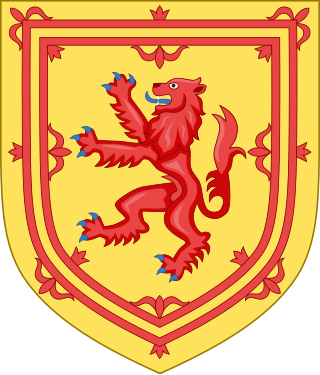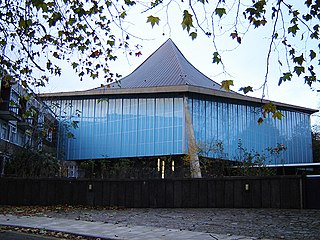
The United States Department of Education is a Cabinet-level department of the United States government. It began operating on May 4, 1980, having been created after the Department of Health, Education, and Welfare was split into the Department of Education and the Department of Health and Human Services by the Department of Education Organization Act, which President Jimmy Carter signed into law on October 17, 1979.

The secretary of state for education, also referred to as the education secretary, is a secretary of state in the Government of the United Kingdom, responsible for the work of the Department for Education. The incumbent is a member of the Cabinet of the United Kingdom.

The Scottish Government is the devolved government of Scotland. It was formed in 1999 as the Scottish Executive following the 1997 referendum on Scottish devolution.

The Welsh Office was a department in the Government of the United Kingdom with responsibilities for Wales. It was established in April 1965 to execute government policy in Wales, and was headed by the Secretary of State for Wales, a post which had been created in October 1964. It was disbanded on 1 July 1999 when most of its powers were transferred to the National Assembly for Wales, with some powers transferred to the Office of the Secretary of State for Wales, a department popularly known as the Wales Office.

The Welsh Government is the devolved government of Wales. The government consists of ministers and deputy ministers, and also of a counsel general. Ministers only attend the Cabinet Meetings of the Welsh Government. It is led by the first minister, usually the leader of the largest party in the Senedd, who selects ministers and deputy ministers with the approval of the Senedd. The government is responsible for tabling policy in devolved areas for consideration by the Senedd and implementing policy that has been approved by it.

The secretary of state for health and social care, also referred to as the health secretary, is a secretary of state in the Government of the United Kingdom, responsible for the work of the Department of Health and Social Care. The incumbent is a member of the Cabinet of the United Kingdom.

The Ministry of Agriculture, Fisheries and Food (MAFF) was a United Kingdom government department created by the Board of Agriculture Act 1889 and at that time called the Board of Agriculture, and then from 1903 the Board of Agriculture and Fisheries, and from 1919 the Ministry of Agriculture and Fisheries. It attained its final name in 1955 with the addition of responsibilities for the British food industry to the existing responsibilities for agriculture and the fishing industry, a name that lasted until the Ministry was dissolved in 2002, at which point its responsibilities had been merged into the Department for Environment, Food and Rural Affairs (Defra).

The Scottish Office was a department of the Government of the United Kingdom from 1885 until 1999, exercising a wide range of government functions in relation to Scotland under the control of the Secretary of State for Scotland. Following the establishment of the Scottish Parliament in 1999, most of its work was transferred to the newly established Scottish Executive, with a small residue of functions retained by the Scotland Office.

The Board of Trade is a British government body concerned with commerce and industry, currently within the Department for Business and Trade. Its full title is The Lords of the Committee of the Privy Council appointed for the consideration of all matters relating to Trade and Foreign Plantations, but is commonly known as the Board of Trade, and formerly known as the Lords of Trade and Plantations or Lords of Trade, and it has been a committee of the Privy Council of the United Kingdom. The board has gone through several evolutions, beginning with extensive involvement in colonial matters in the 17th century, to powerful regulatory functions in the Victorian Era and early 20th century. It was virtually dormant in the last third of the 20th century. In 2017, it was revitalised as an advisory board headed by the International Trade Secretary who has nominally held the title of President of the Board of Trade, and who at present is the only privy counsellor of the board, the other members of the present board filling roles as advisers.

The British Film Institute (BFI) is a film and television charitable organisation which promotes and preserves film-making and television in the United Kingdom. The BFI uses funds provided by the National Lottery to encourage film production, distribution, and education. It is sponsored by the Department for Culture, Media and Sport, and partially funded under the British Film Institute Act 1949.

The Intellectual Property Office of the United Kingdom is, since 2 April 2007, the operating name of The Patent Office. It is the official government body responsible for intellectual property rights in the UK and is an executive agency of the Department for Science, Innovation and Technology (DSIT).

The Commonwealth Education Trust was a registered charity established in 2007 as the successor trust to the Commonwealth Institute. The trust focuses on primary and secondary education and the training of teachers and invests on educational products and services to achieve both a beneficial and a financial reward to fund future charitable initiatives.

The Isle of Man Government is the government of the Isle of Man. The formal head of the Isle of Man Government is the Lieutenant Governor, the personal representative of Charles III. The executive head is the Chief Minister.

Asbury Francis "Frank" Lever was a member of the United States House of Representatives from South Carolina.

The Parliamentary Secretary to the Board of Education was a junior ministerial office in the United Kingdom Government. The Board of Education Act 1899 abolished the Committee of the Privy Council which had been responsible for education matters and instituted a new Board of Education from 1 April 1900. The Board was headed by a President. From the appointment of the Marquess of Londonderry as President in the Balfour government in August 1902 the post of Parliamentary Secretary to the Board was established.
The Department of Agriculture, Environment and Rural Affairs (DAERA) is a government department in the Northern Ireland Executive, the devolved administration for Northern Ireland. The minister with overall responsibility for the department is the Minister of Agriculture, Environment and Rural Affairs. The department was called the Department of Agriculture and Rural Development between 1999 and 2016. The Minister of Agriculture previously existed in the Government of Northern Ireland (1921–1972), where the department was known as the Department of Agriculture for Northern Ireland or the Ministry of Agriculture. The current Permanent Secretary is Denis McMahon.

The Liberal government of the United Kingdom of Great Britain and Ireland that began in 1905 and ended in 1915 consisted of two ministries: the first led by Henry Campbell-Bannerman and the final three by H. H. Asquith.
The Ministry of Education (1944-1964) was a central government department governed by the Minister of Education, with responsibility in England and Wales for:
- Promoting the education of people;
- Developing educational institutions;
- Developing policy to provide a comprehensive educational service;
- Securing the effective execution of the education policy by local education authorities

The Department for Education (DfE) is a department of His Majesty's Government responsible for child protection, child services, education, apprenticeships, and wider skills in England.
A community school in England and Wales is a type of state-funded school in which the local education authority employs the school's staff, is responsible for the school's admissions and owns the school's estate. The formal use of this name to describe a school derives from the School Standards and Framework Act 1998.
















